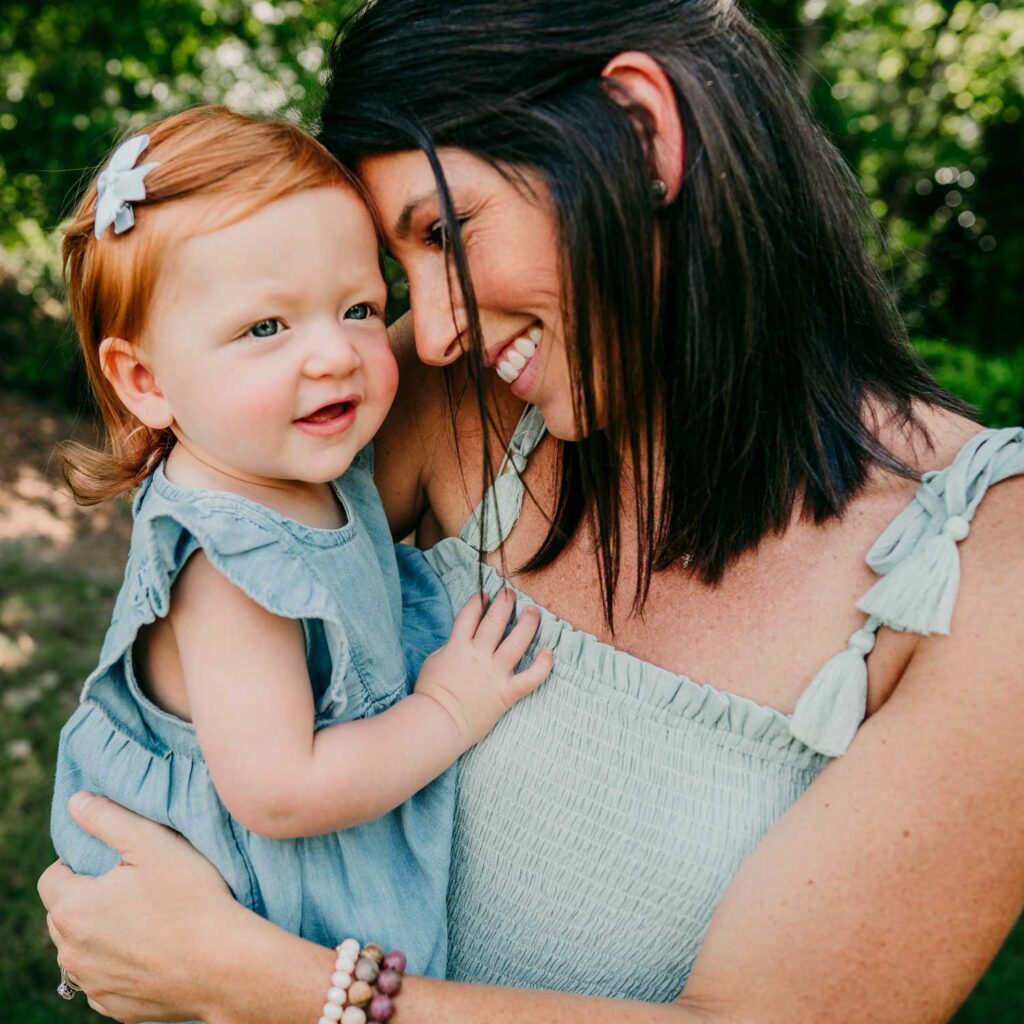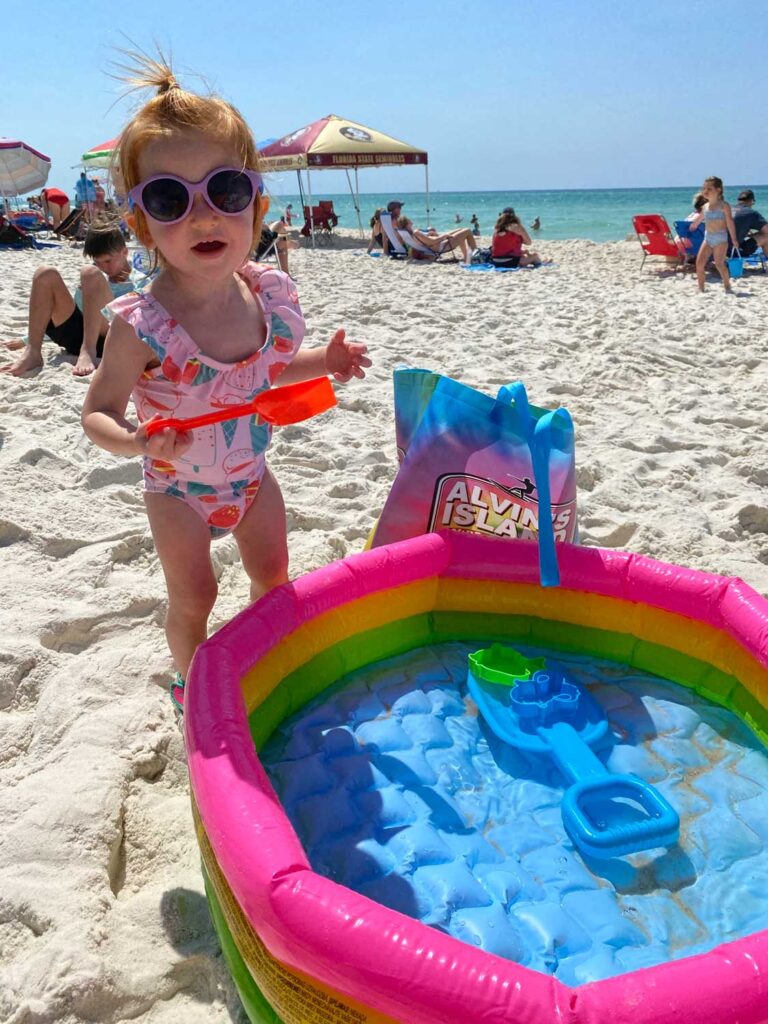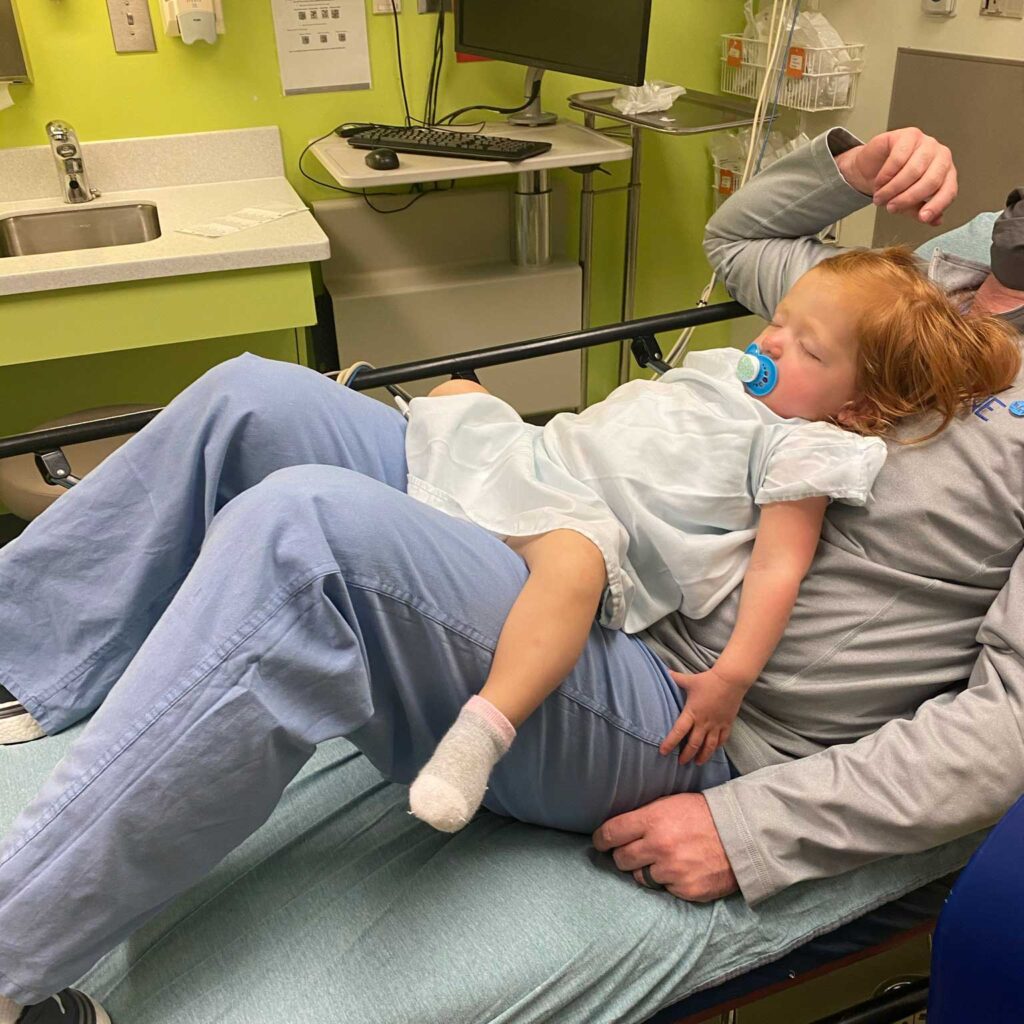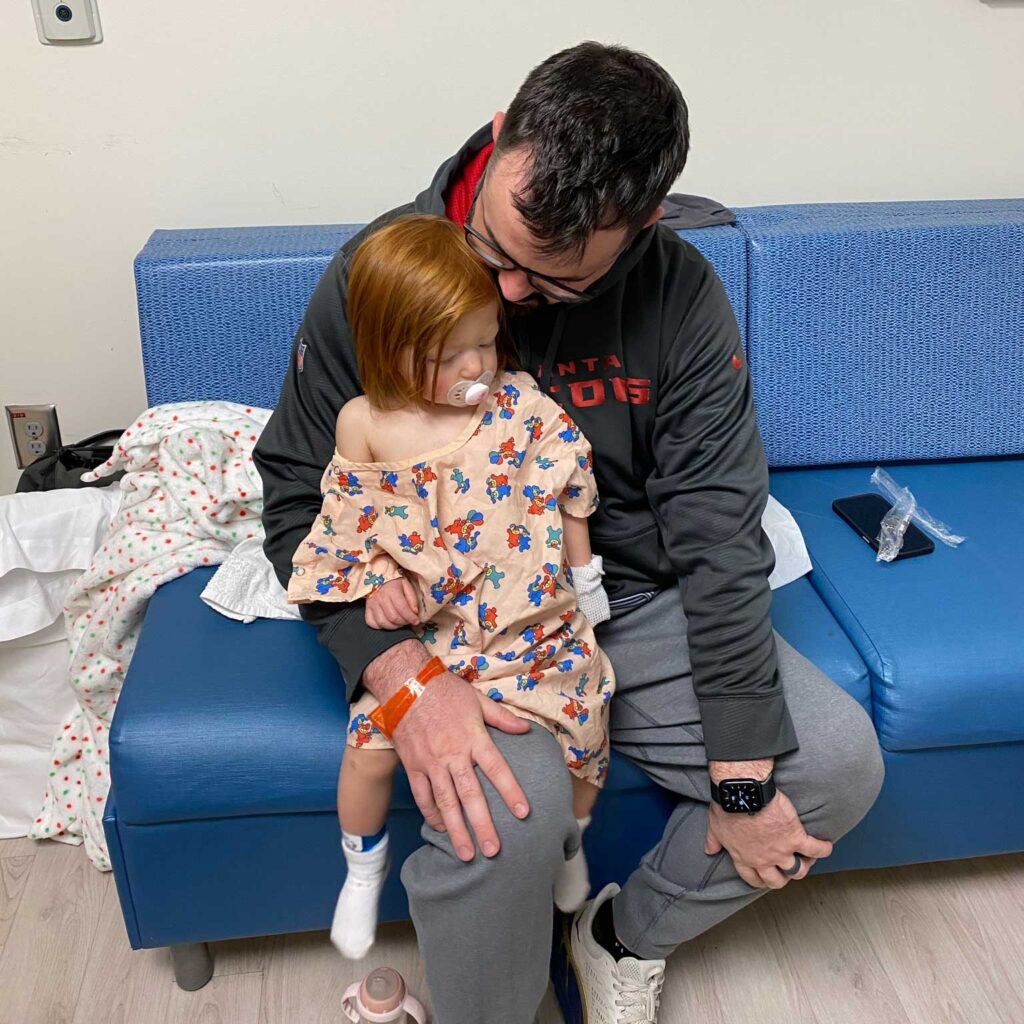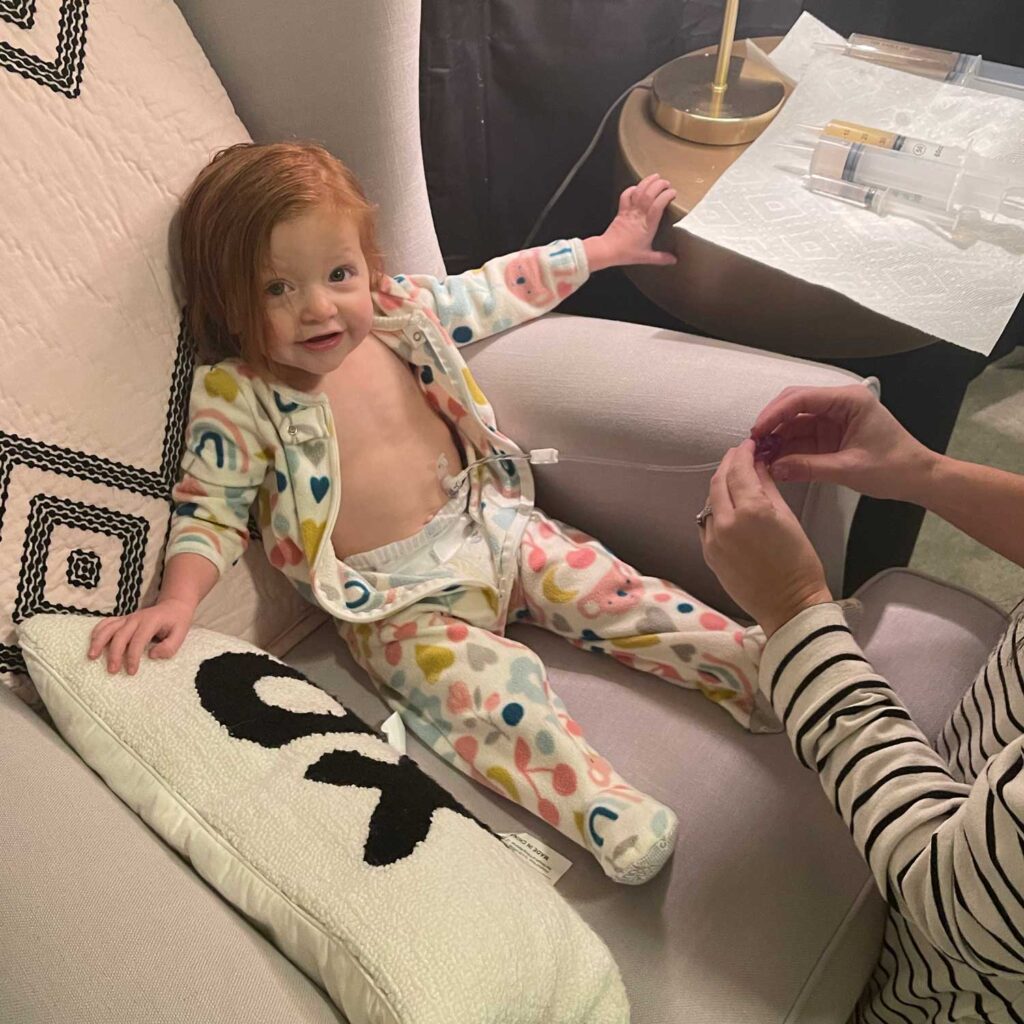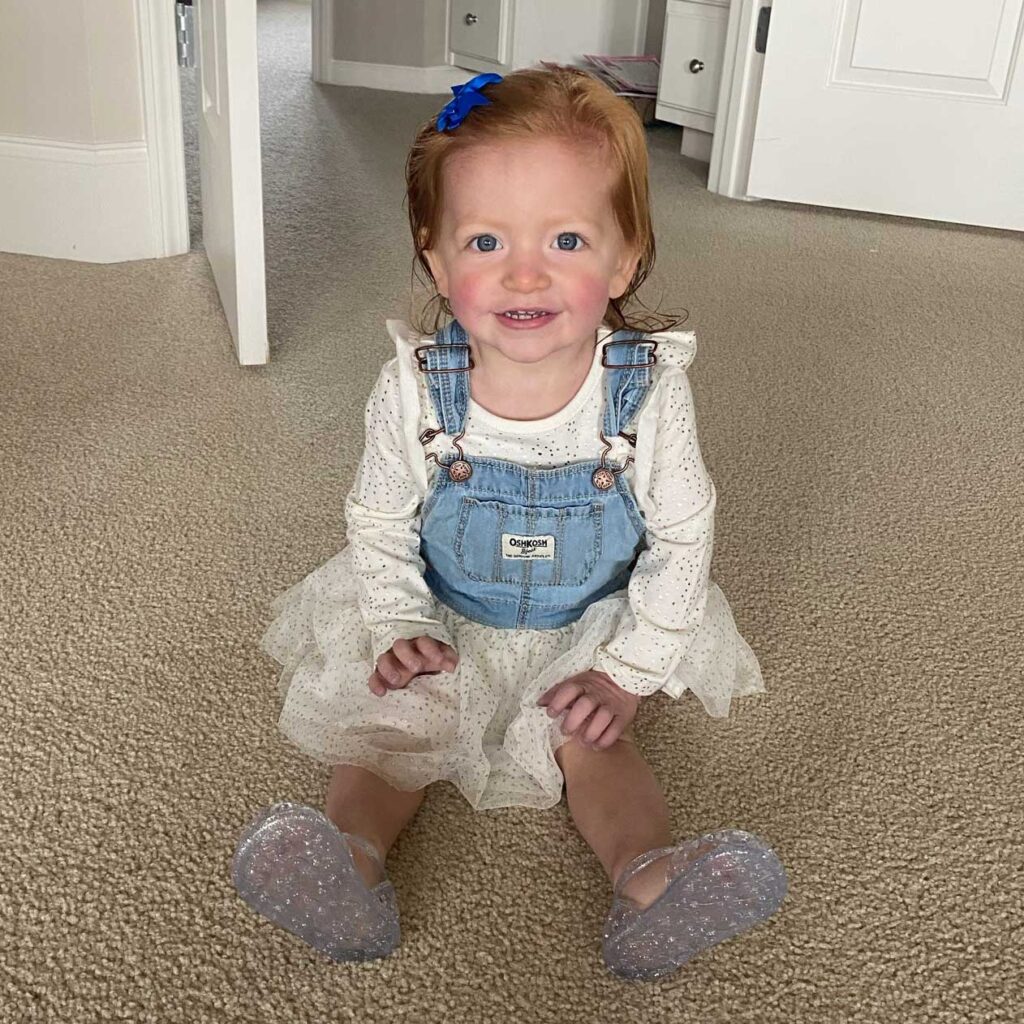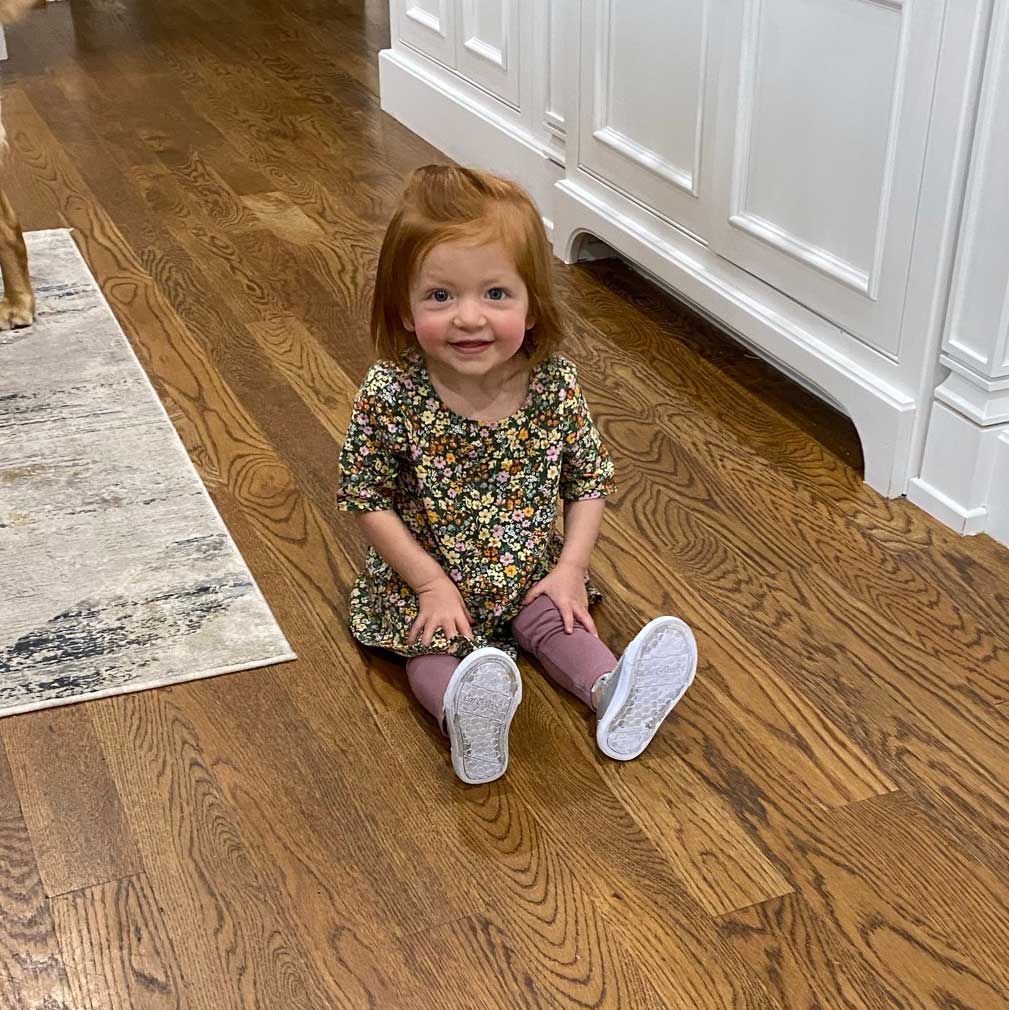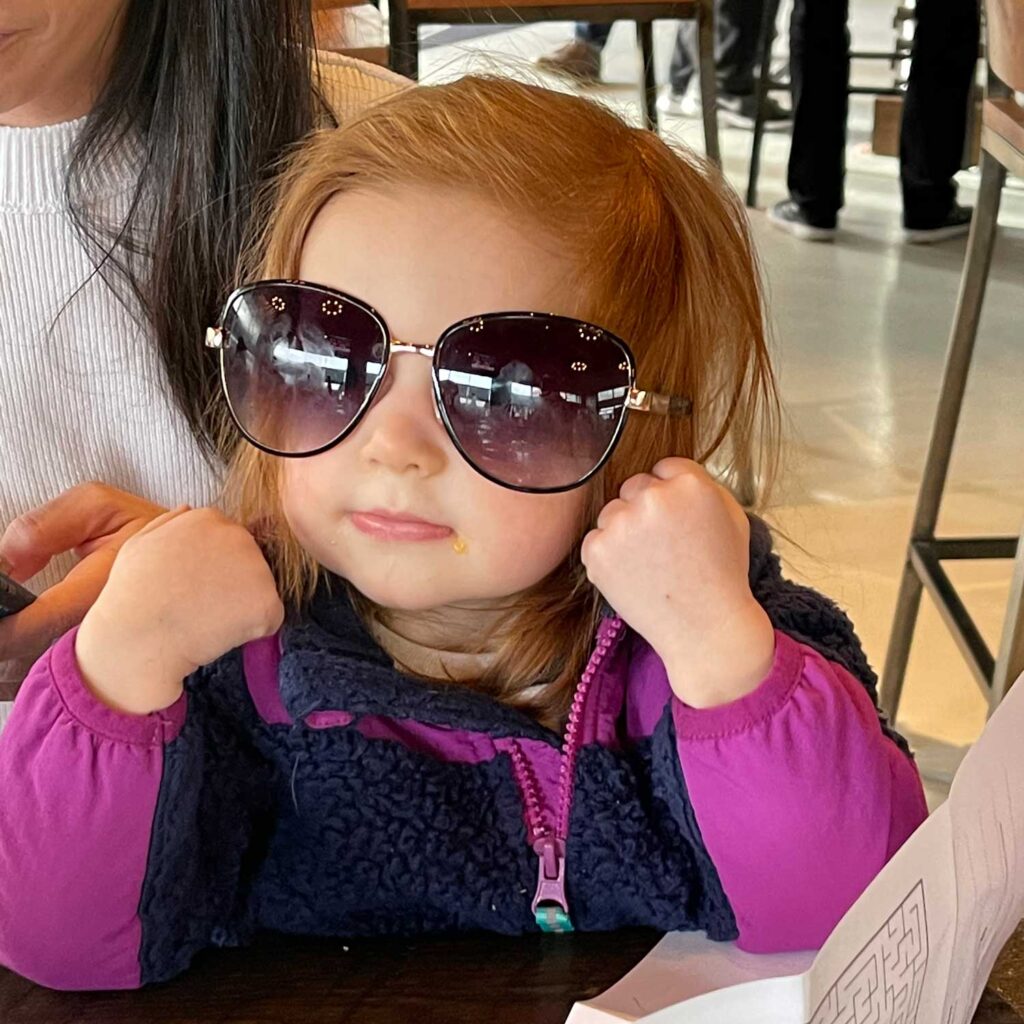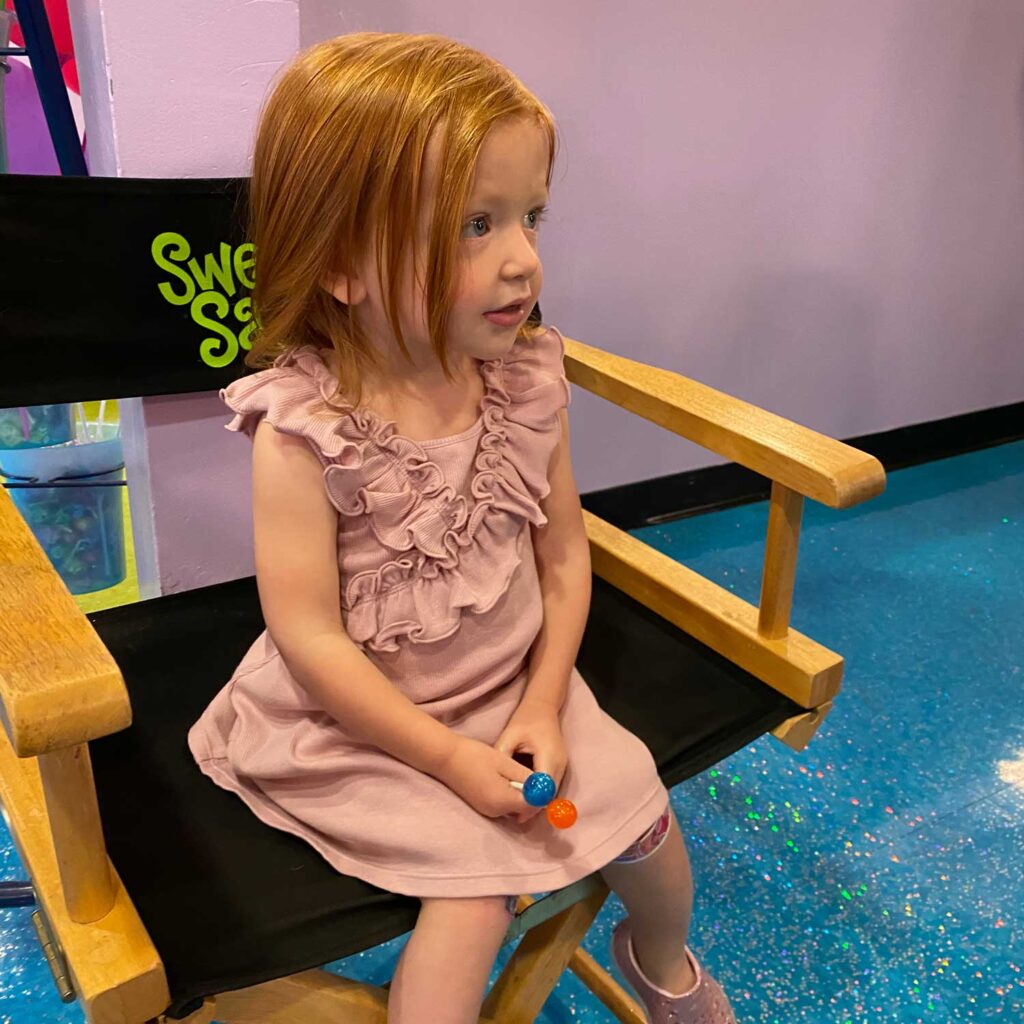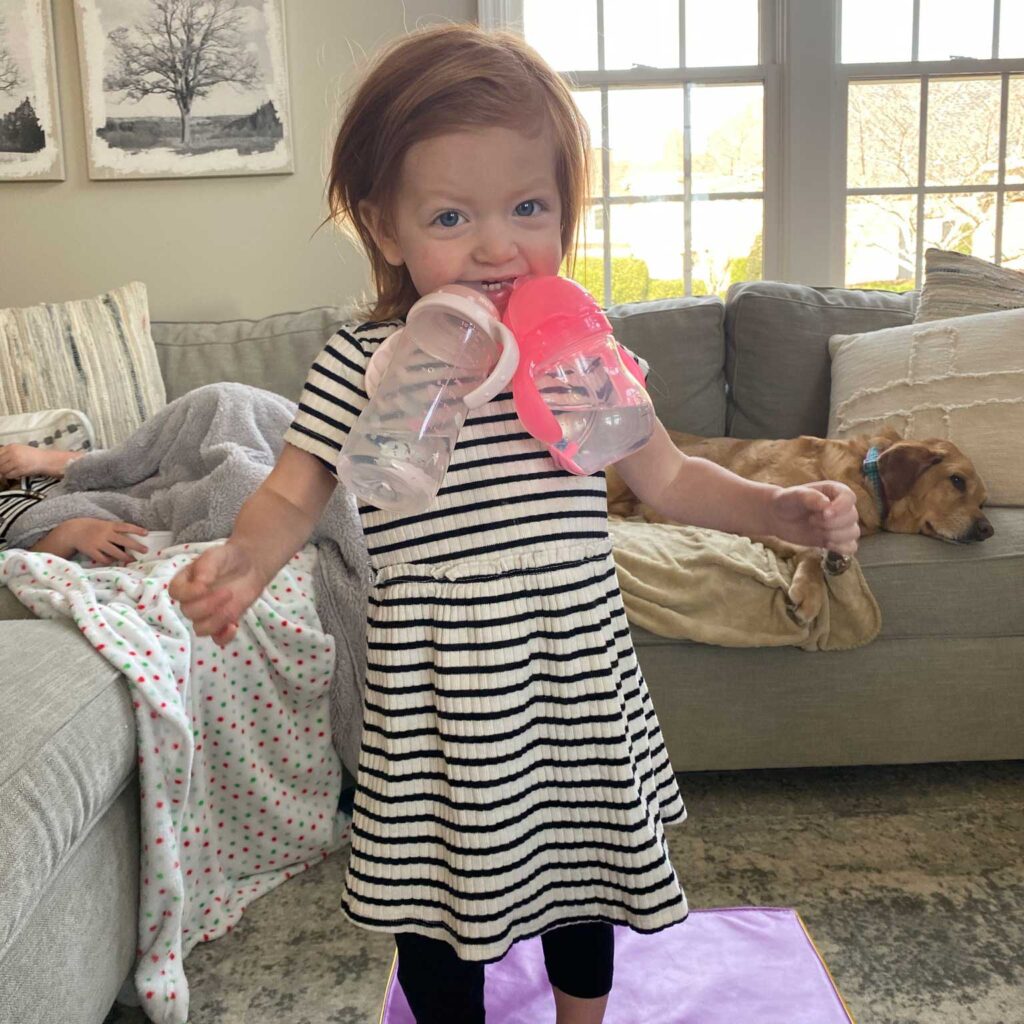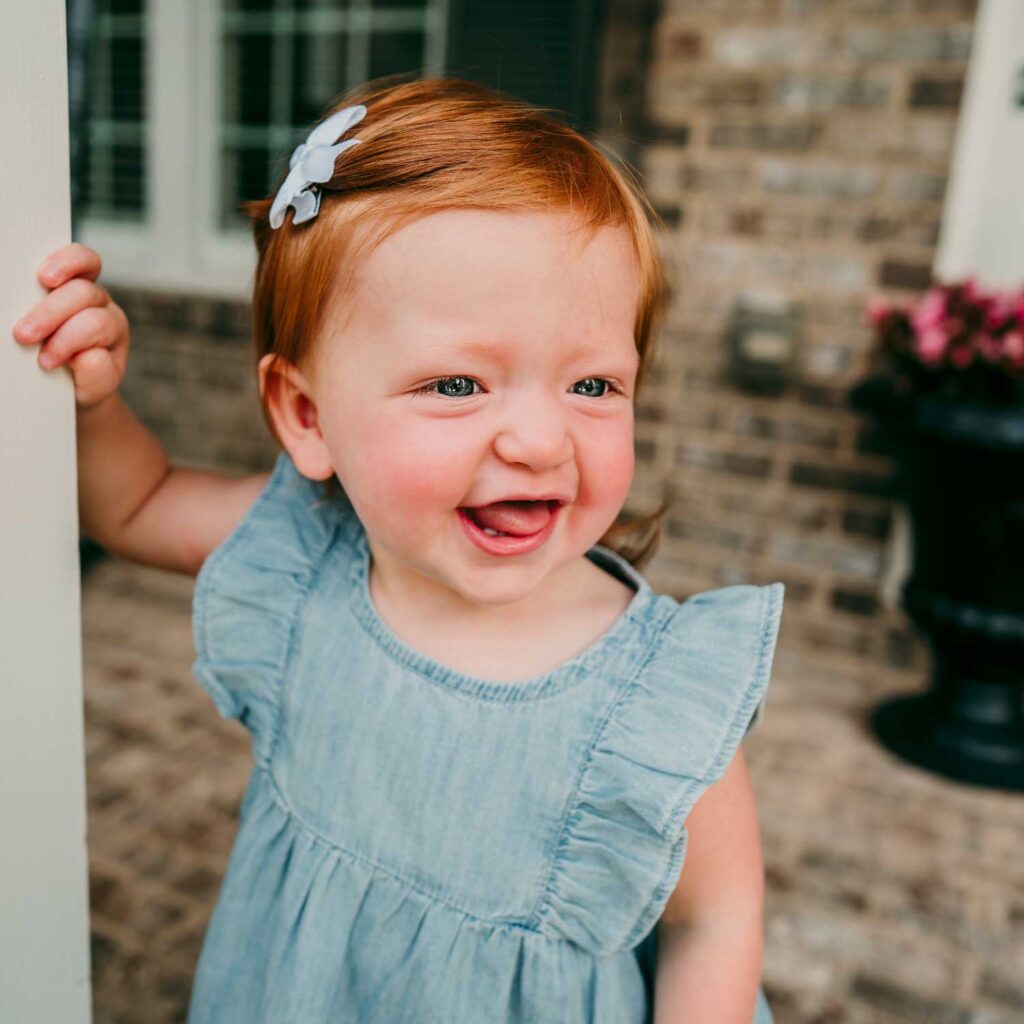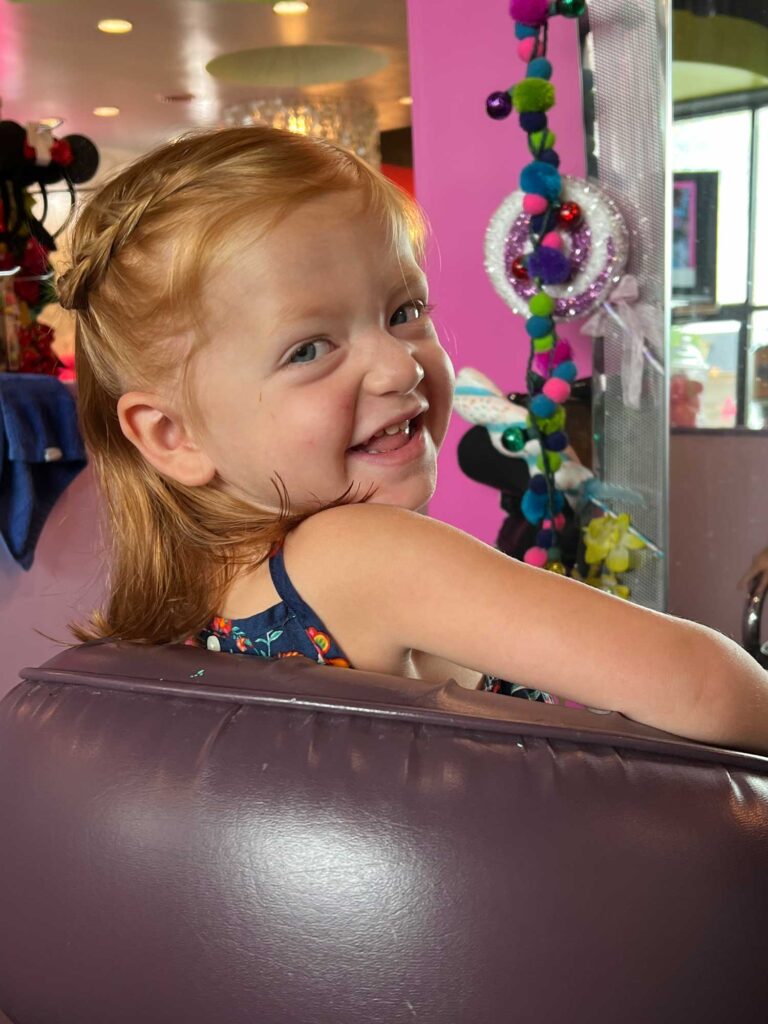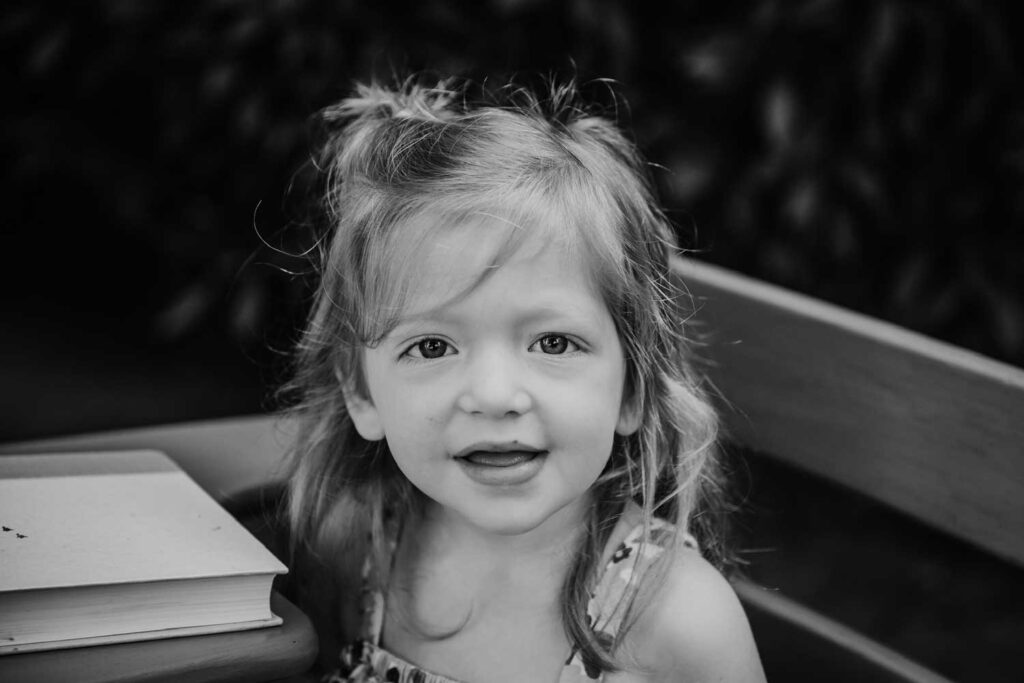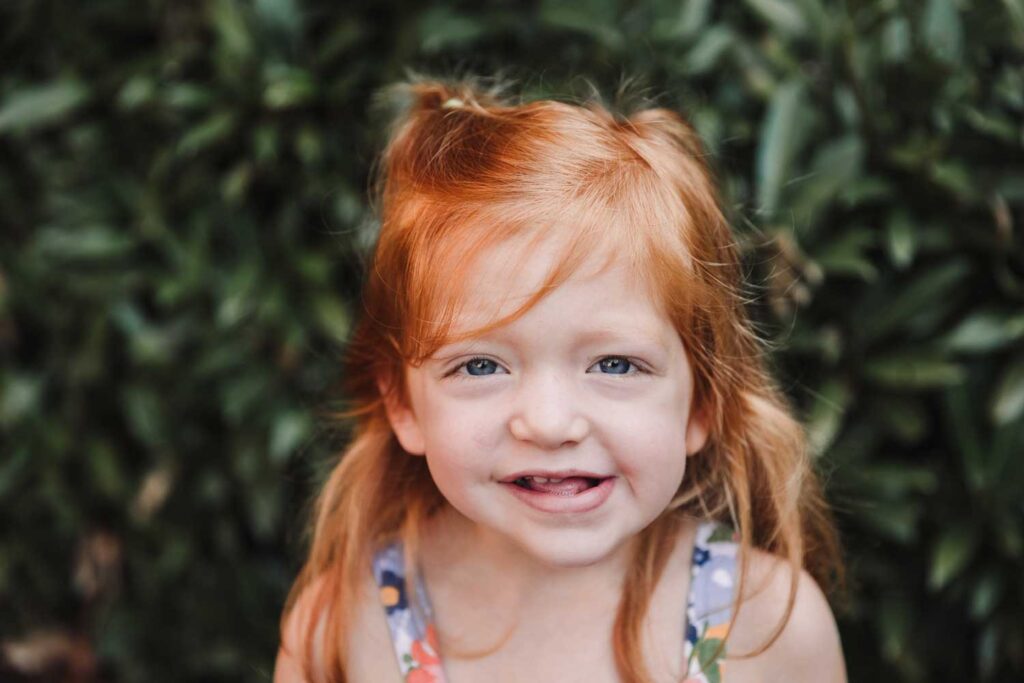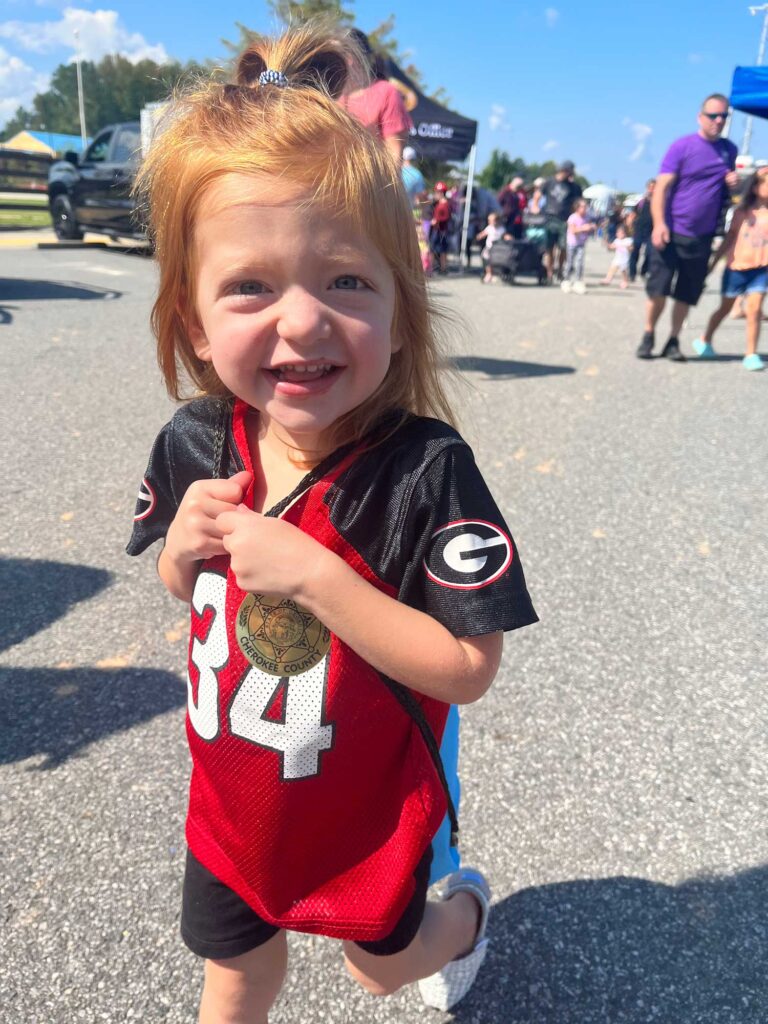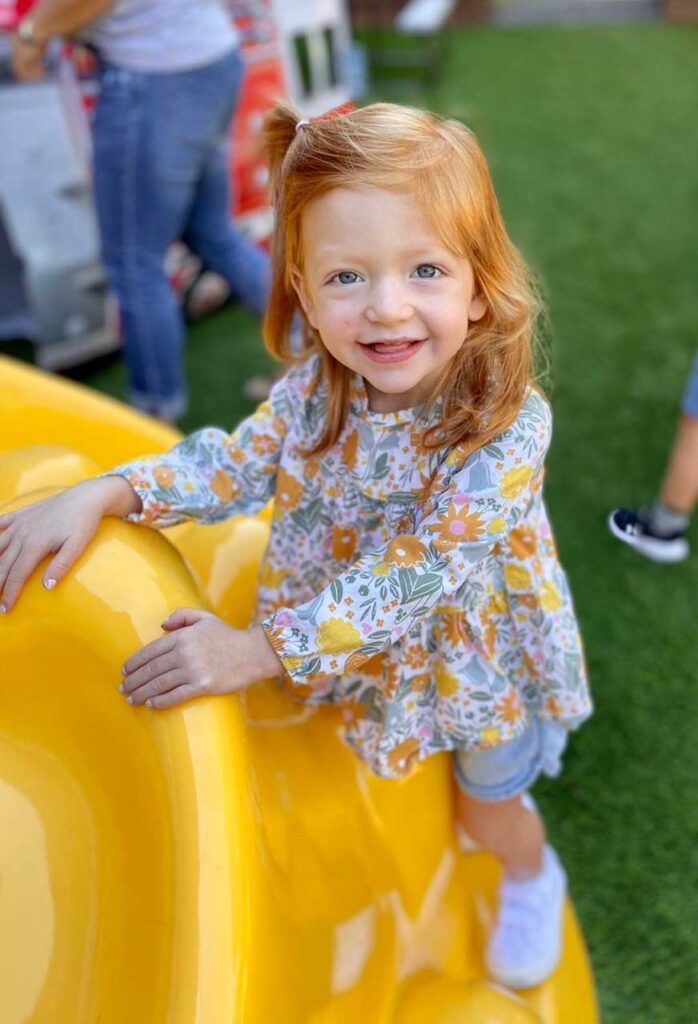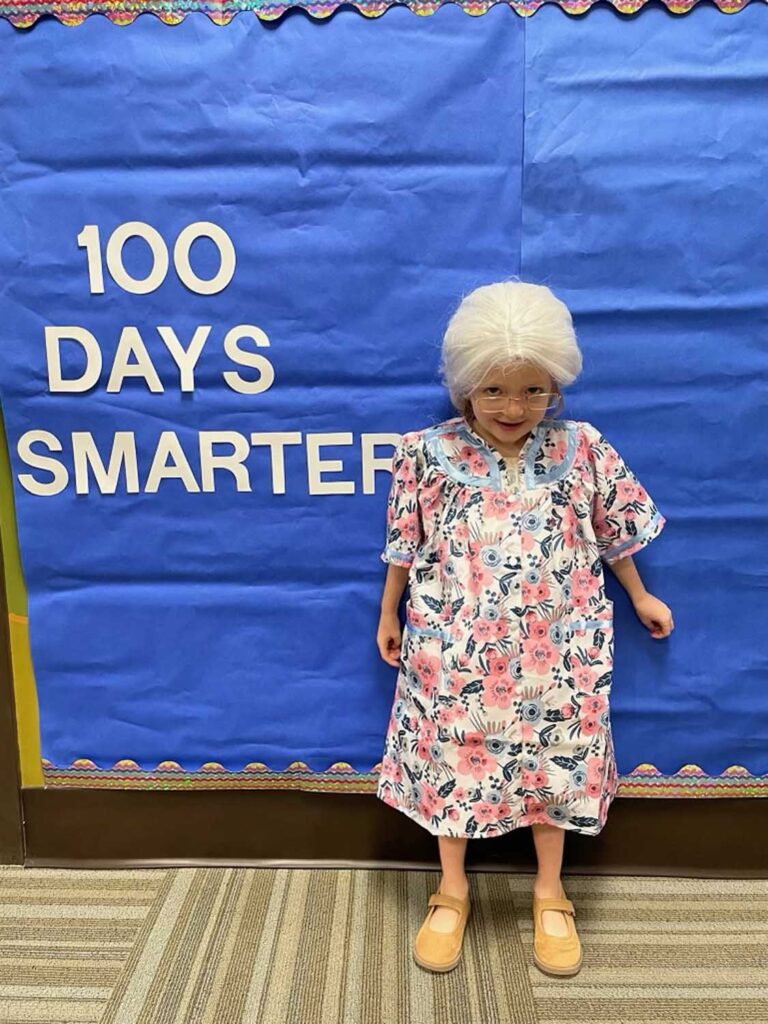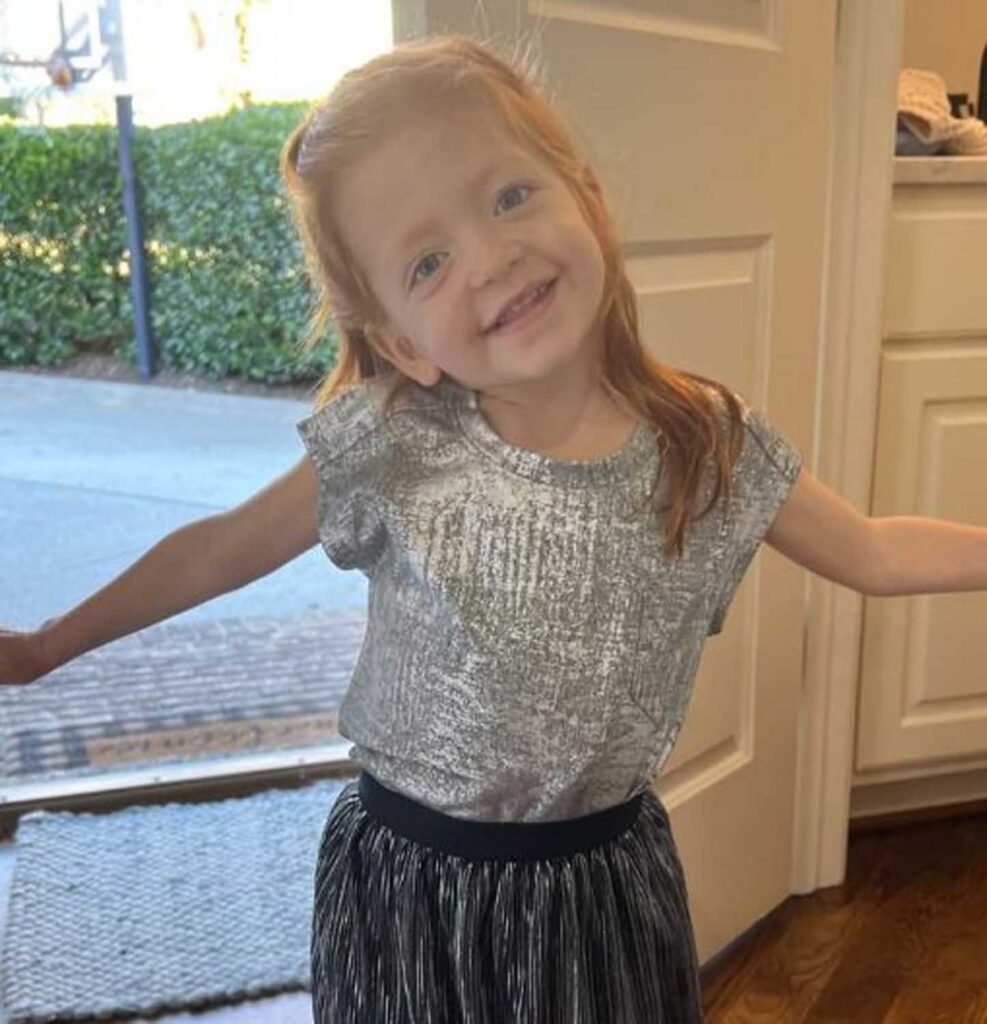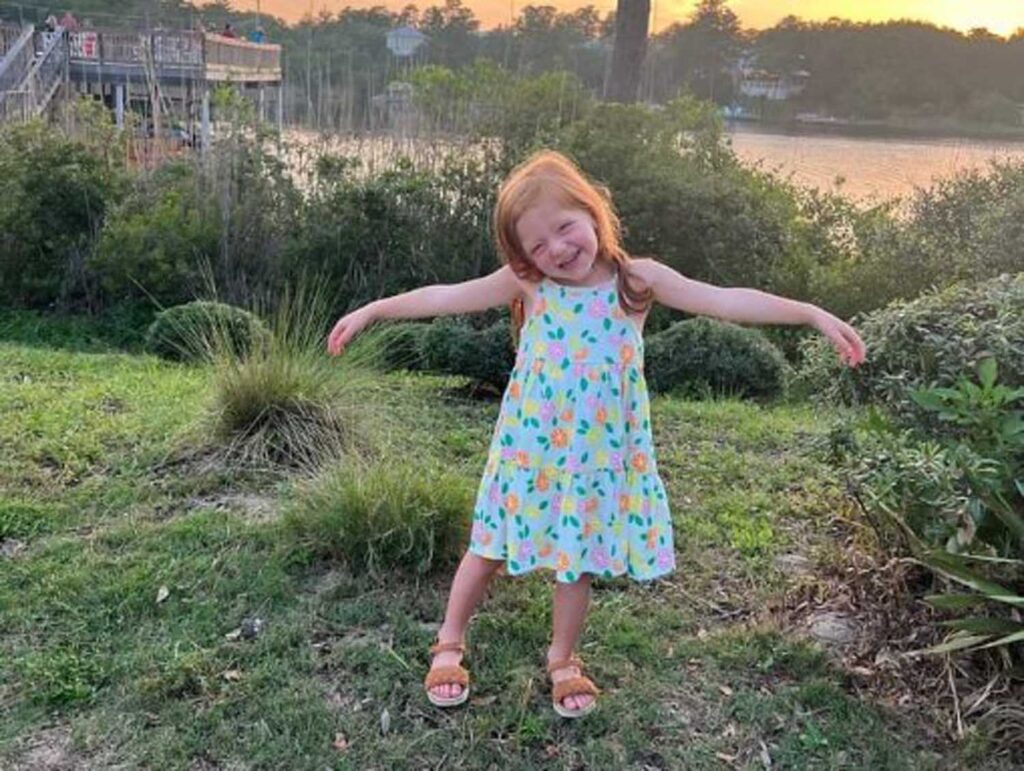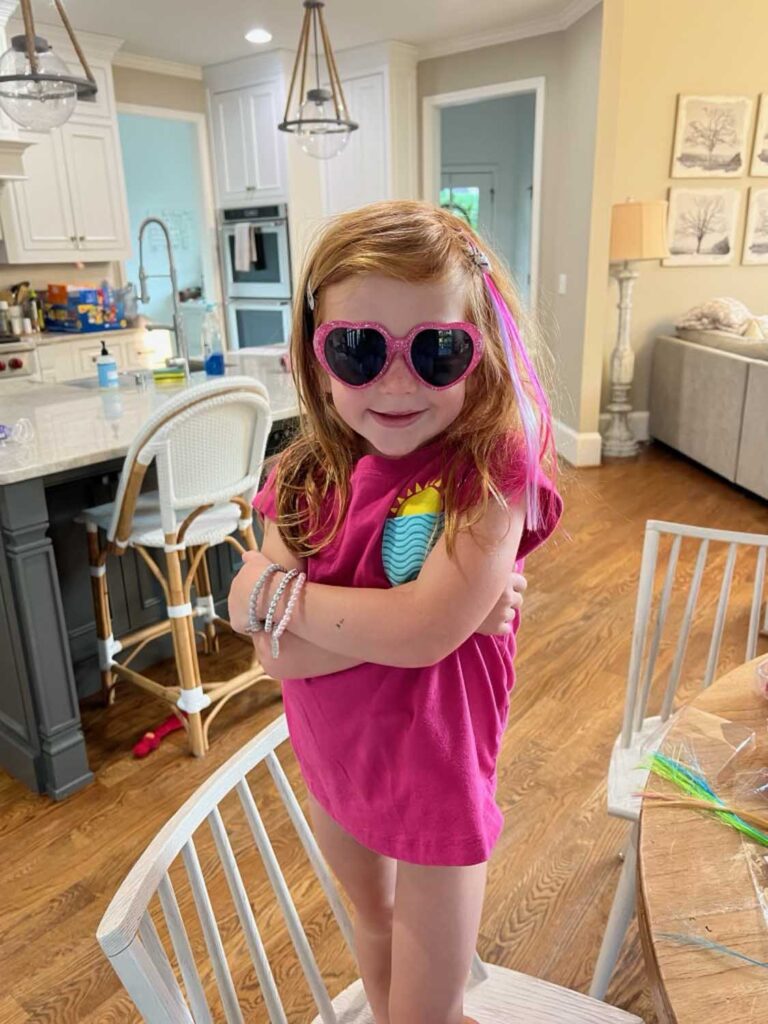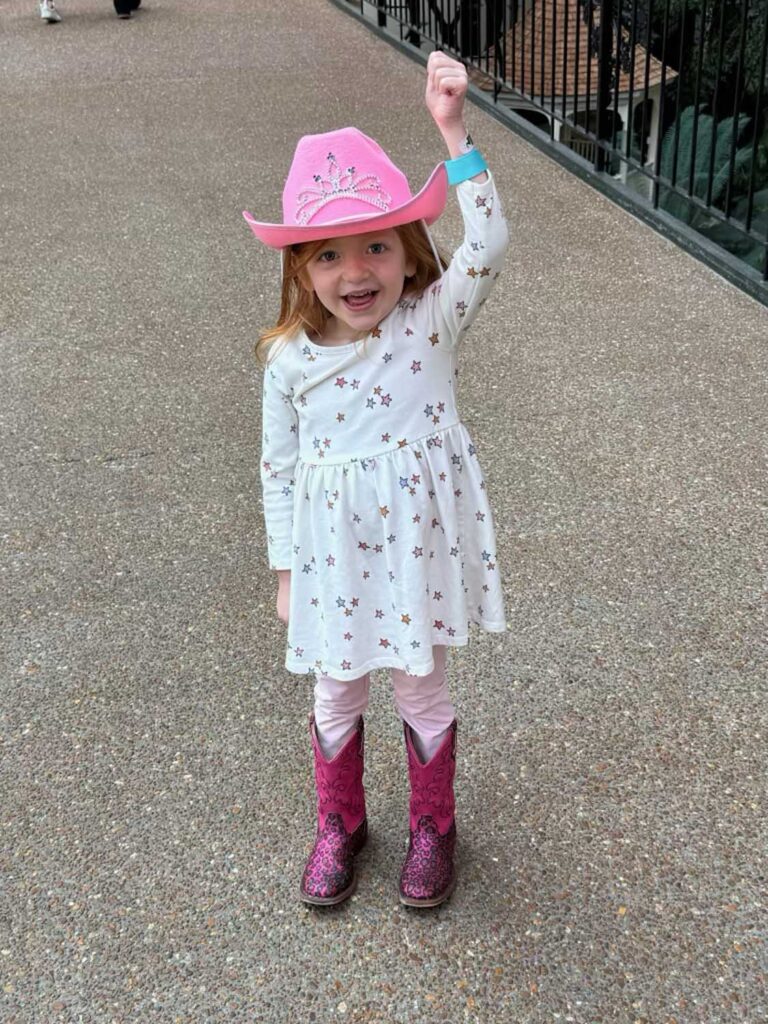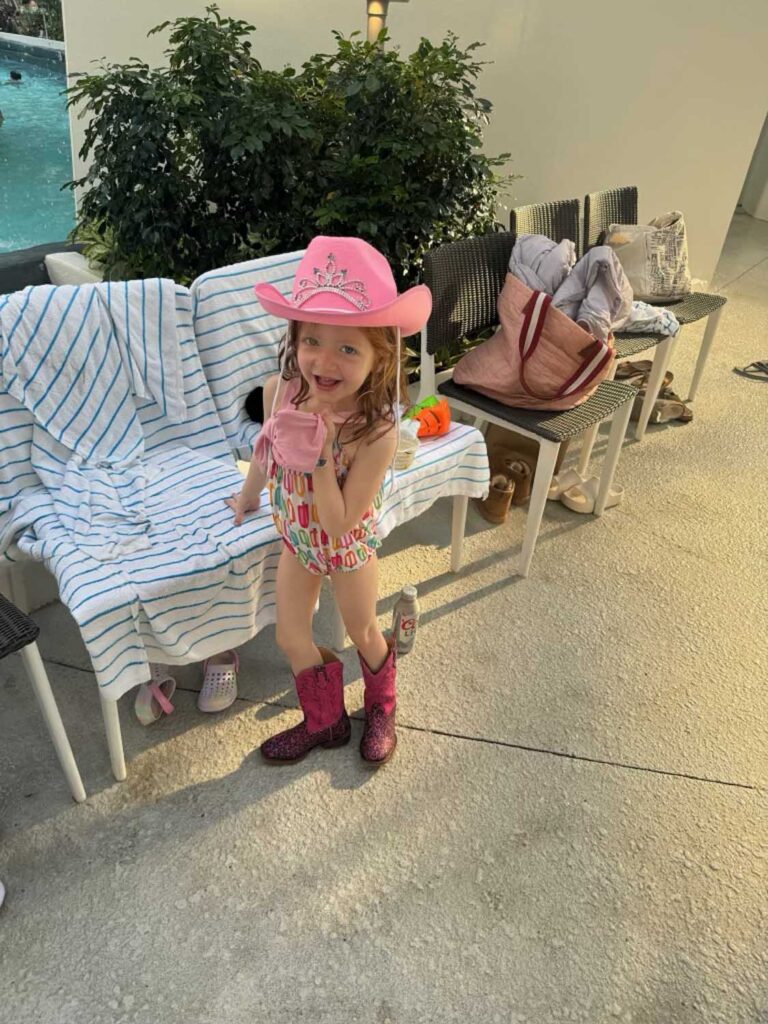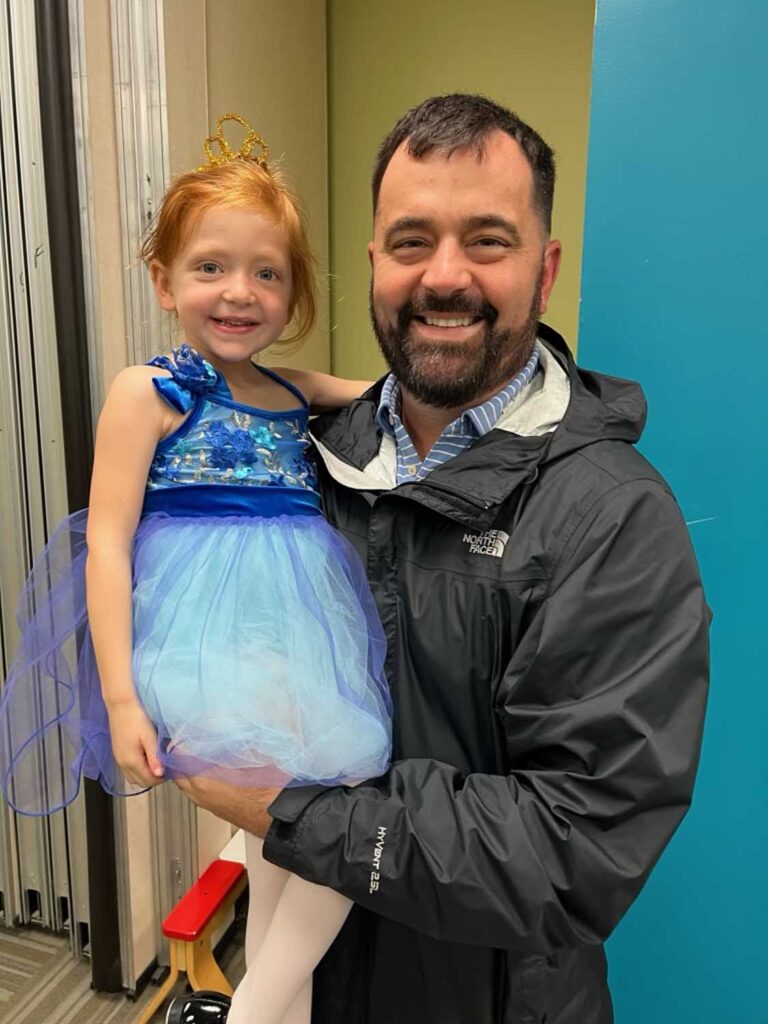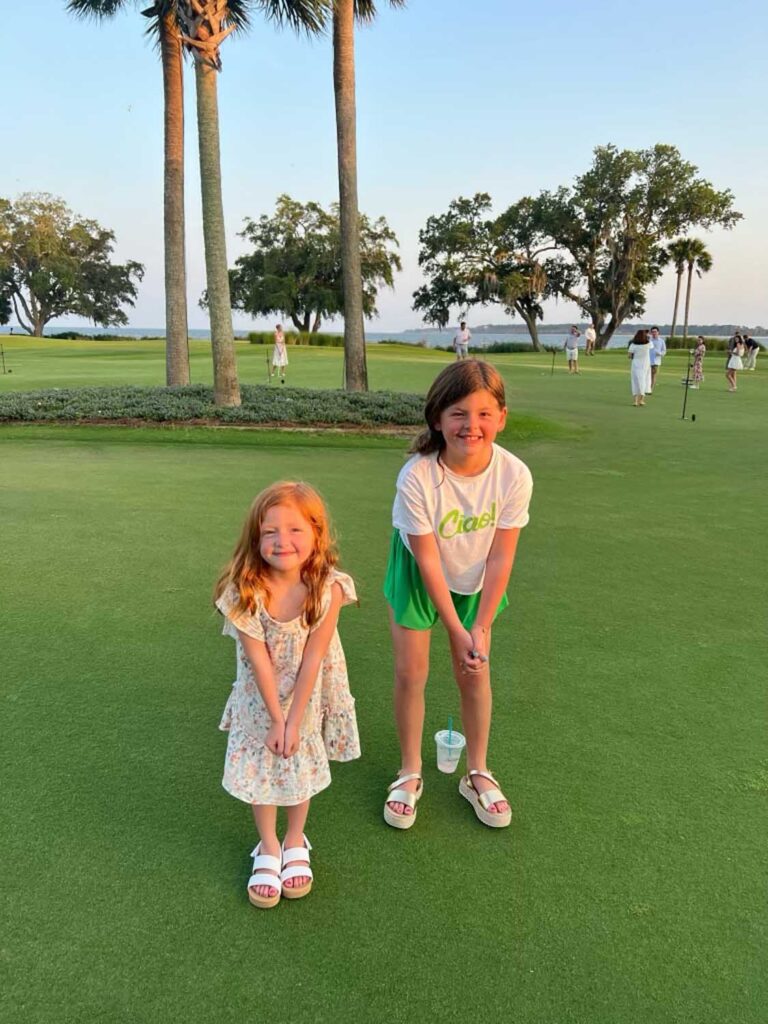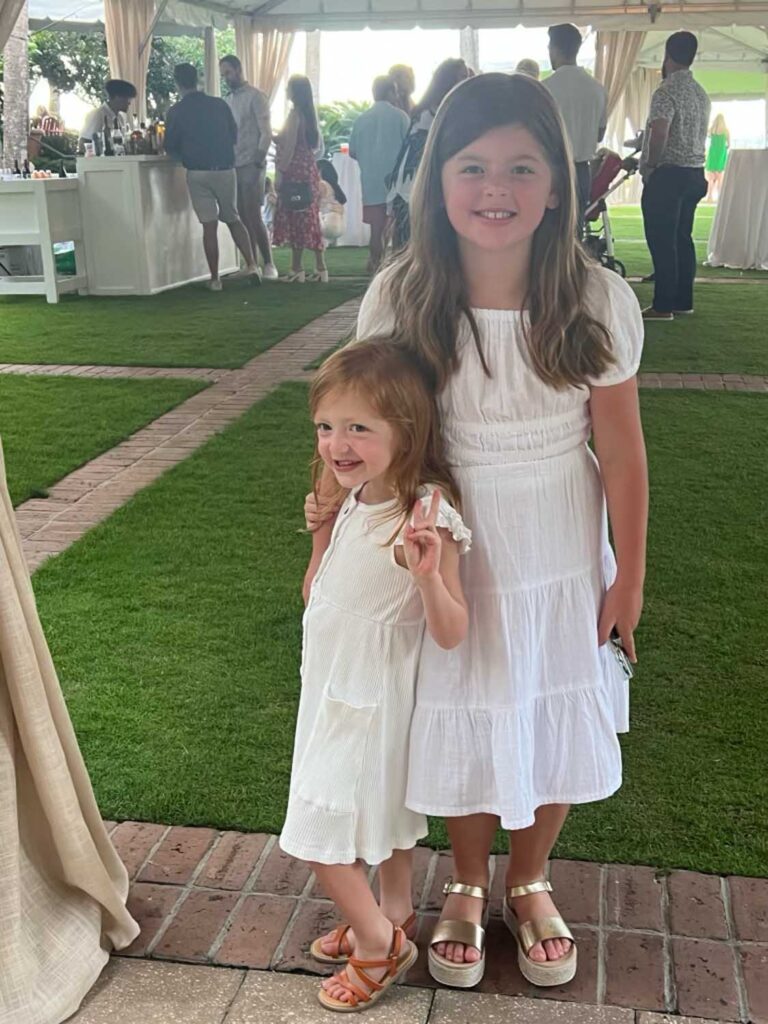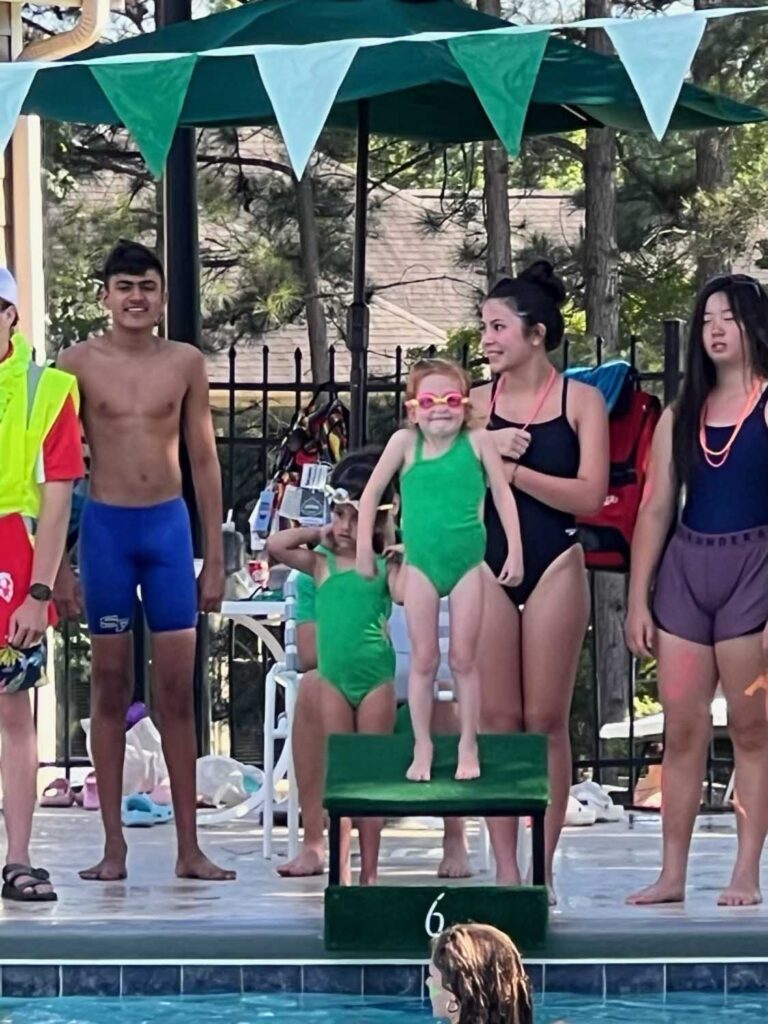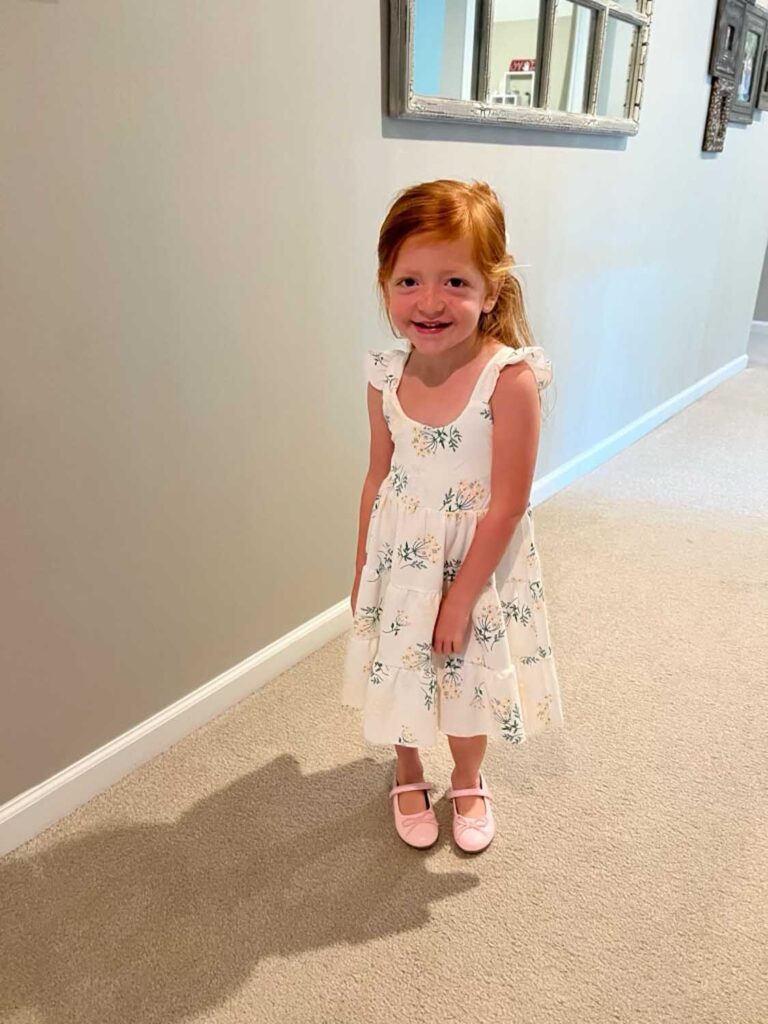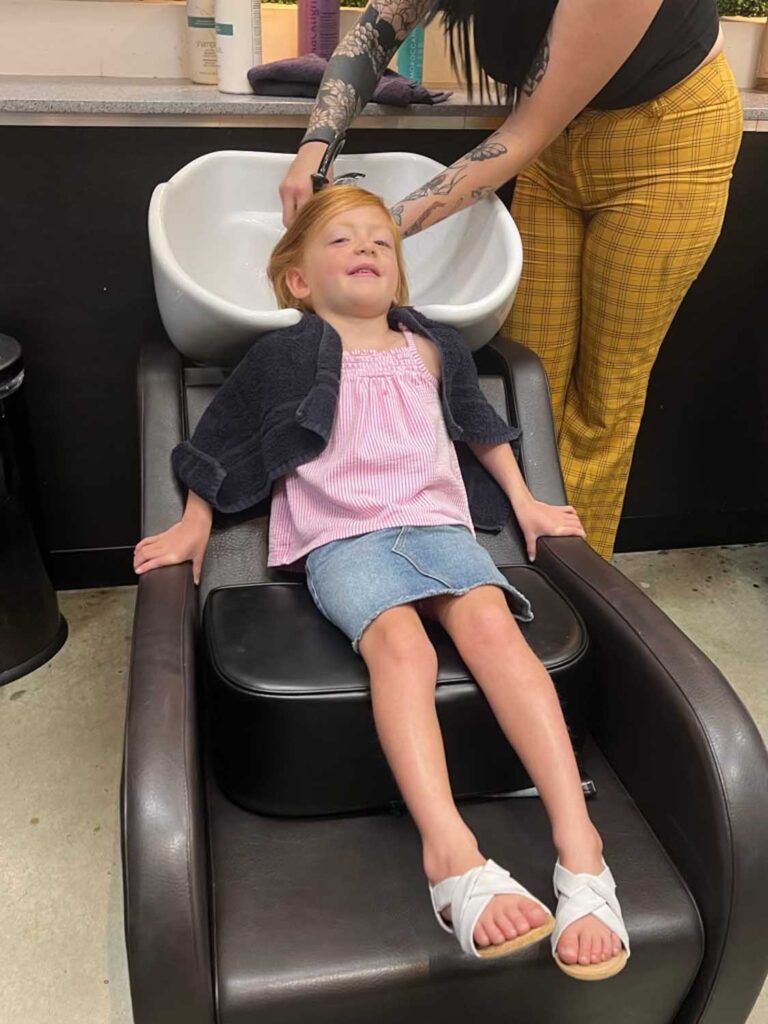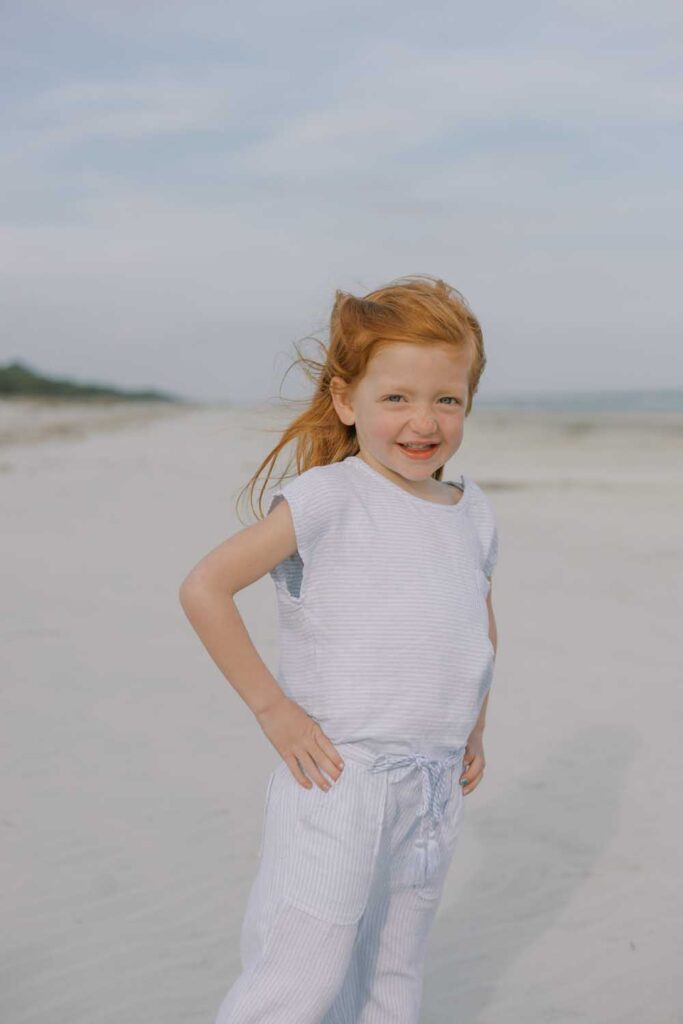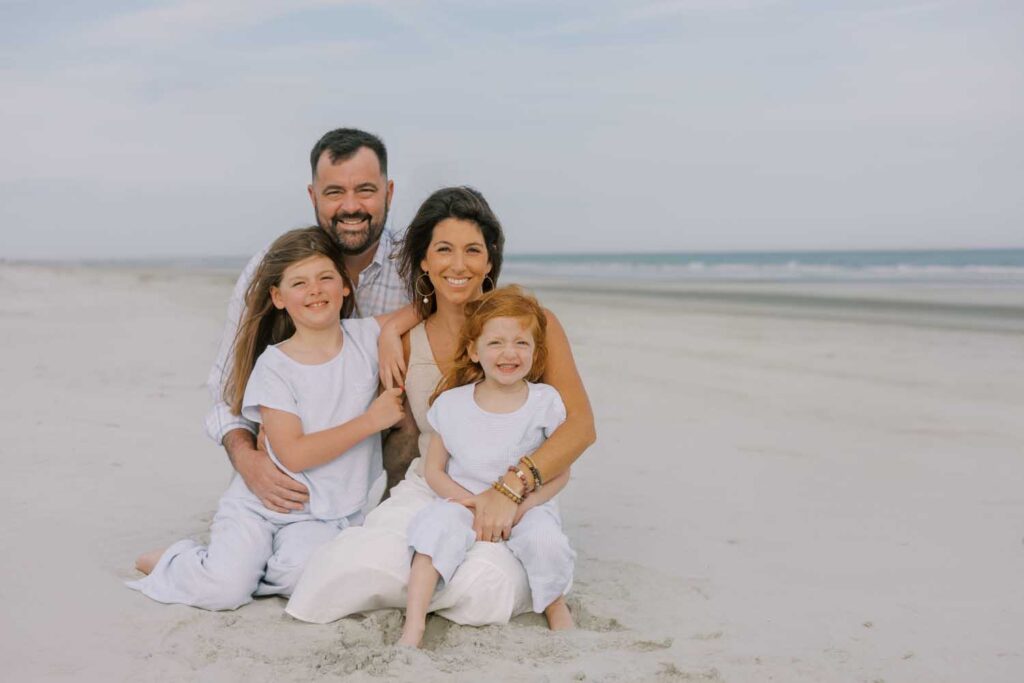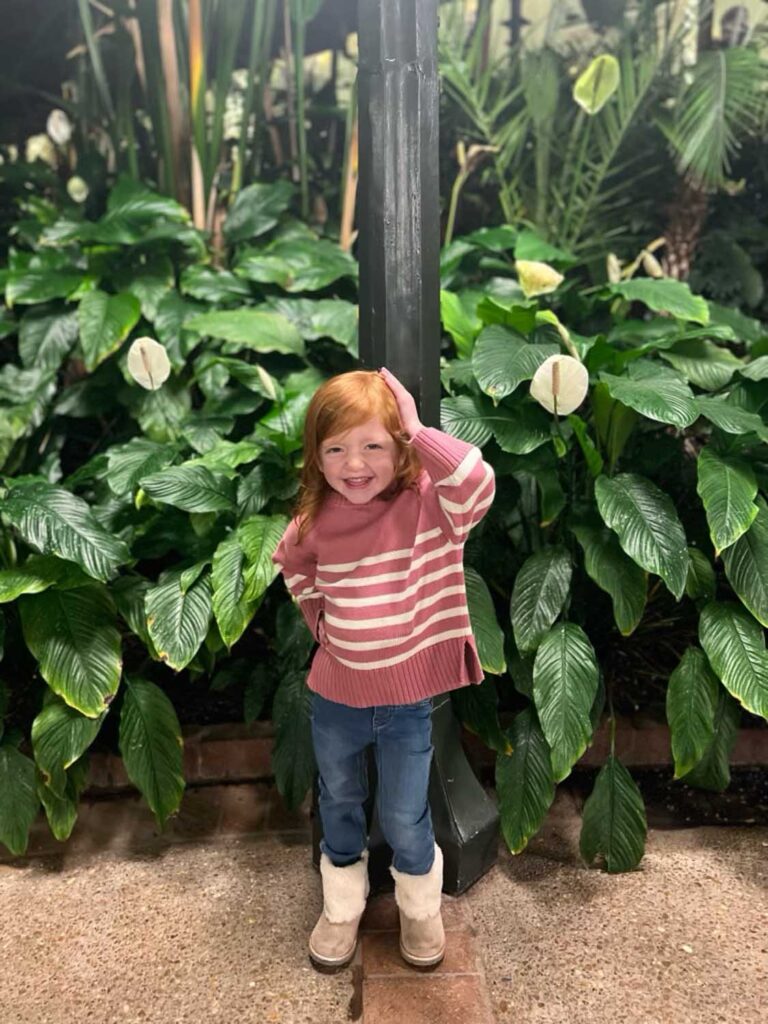
Collins Grace was born on 6/14/2019 weighing 7lbs 11oz. And she had red hair and blue eyes! WHAT?!? We couldn’t believe it. There were lots of “amazon guy” jokes. Our family was complete and Hunt was seriously outnumbered!
Collins was always petite compared to her older sister but remained on the growth charts and got great reports at her checkups. Around 12 months we began noticing that she LOVED water. We thought this was great; water is so healthy. But after a few months it began to make us wonder…why is she so thirsty? We called our pediatrician and they had us come in that day. A finger prick and urine sample showed that her blood sugar looked normal, but they did notice glucose in her urine. They immediately sent us to Scottish Rite Hospital for more testing. After collecting additional bloodwork and urine samples they felt confident she did not have the common form of diabetes. They sent us home to follow up with an Endocrinologist. After weeks of additional bloodwork and a two-night hospital stay (where she was not allowed to drink any water and they drew blood every hour for 12 hours) they concluded she did not have any form of diabetes. However, they did find that her kidneys were leaking important elements that should be re-absorbed. This was when we were first introduced to the word CYSTINOSIS, a rare genetic disease. Nothing was confirmed but the possibility left us feeling completely defeated. How could our healthy baby who just loves water have a genetic disease?
Collins’ Story
(continued)
After additional bloodwork, we received confirmation right after Christmas in 2020 – “Collins has Cystinosis.” Those three words changed our lives forever. We would quickly learn that this progressive disease eventually spreads to damage every organ in the body. So far, Collins’ kidneys and eyes are the only organs affected. We feel lucky that Cystinosis does have a treatment to slow the progression, although it’s side effects can be harsh. In January she underwent surgery to place a gastrostomy tube in her belly. We use this to administer her meds, as they have a terrible taste and odor so taking them orally is very difficult at her age. Collins’ days include morning vomiting, strict medicine and eating schedules, and eye drops. She has blood drawn frequently to monitor her levels and adjust the amount of medicine to keep her levels safe.
Since diagnosis we have learned so much about caring for a child with a chronic disease and we have learned the importance of advocacy for these diseases. The Cystinosis Research Foundation is giving us hope for Collins’ future. CRF is dedicated to funding research for better treatments and eventually a cure! Three adult patients have already undergone the stem cell gene therapy and are doing well!
We are very hopeful that a cure is coming within Collins’ lifetime!!!
Our sweet Collins Grace is the strongest girl we know. She has already been through so much but continues smiling and keeping us laughing. She is a fighter and we will never stop fighting for her! Our goal is to raise awareness about this awful disease and help fund the Cystinosis Research Foundation in their quest for a cure!

What is Cystinosis?
Cystinosis is a rare, genetic disease that affects 1 in 100,000-200,000 live births in the United States. It is a lysosome storage disorder caused by a mutation in the CTNS gene on the 17th chromosome, which encodes a protein called “cystinosin.” This protein’s function is to transport an amino acid called cystine out of an intracellular compartment called the lysosome. If the cystinosin protein is absent or dysfunctional, cystine accumulates within the lysosome and forms crystals, which kills the cells. Cystinosis slowly destroys the organs of the body including the kidneys, eyes, thyroid, muscles, liver, pancreas, gonads and brain.
Cystinosis is an autosomal recessive disease, which means both parents are carriers of a cystinosis mutation. Parents do not exhibit any symptoms of cystinosis. In such couples, the odds that each of their children will have cystinosis are 1 in 4. Cystinosis is considered an “orphan” disease because it affects fewer than 200,000 people. With such a rare disease affecting such a small population, money for cystinosis research is scarce. And yet research on complex diseases like cystinosis often leads to advancements in other rare diseases. Research on cystinosis has already led to advancements in Friedrich’s ataxia, Danon disease and Dent’s disease.
Mission Statement
Collins’ Cure has a mission to support bench, clinical and translational research to find better treatments and a cure for cystinosis while at the same time creating awareness about this horrible disease.

